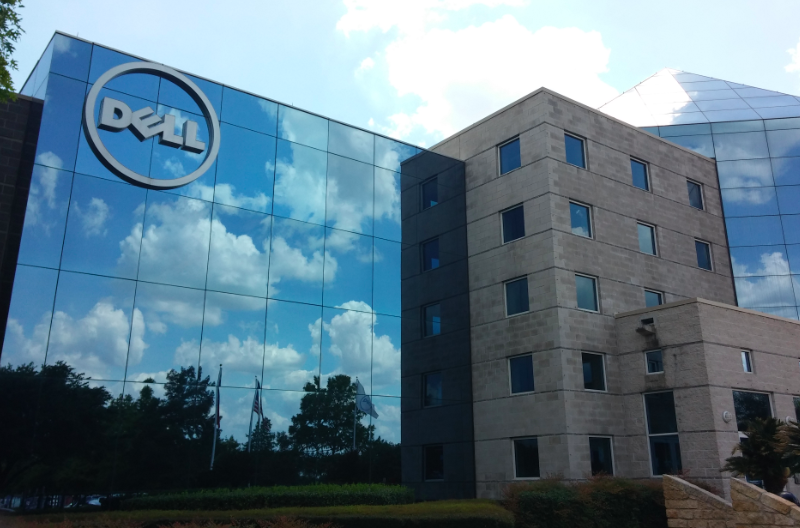South african businesses embrace AI strategy but face implementation barriers, Dell Technologies research shows
Postado por Editorial em 13/11/2025 em NEWSSkills deficits, security concerns, and infrastructure gaps prevent 94% of local companies from scaling AI deployments despite widespread strategic commitment

Artificial intelligence has become a strategic priority for South African businesses, but organizations face significant obstacles translating ambition into operational deployment, according to research released by Dell Technologies at its annual forum in Johannesburg.
The findings, presented at the Dell Technologies Forum South Africa on November 6, 2025 at Kyalami International Convention Centre, indicate that 92% of South African businesses now position AI as central to corporate strategy. Among companies that have initiated AI projects, 32% report measurable improvements in productivity and financial performance from early implementations.
"South African companies are at a tipping point," said Habib Mahakian, Vice President for Southern and Sub-Saharan Africa at Dell Technologies. "The ambition to enhance processes, customer experience and decision-making through AI is clear, but turning that ambition into large-scale, reliable and ethical AI applications remains a significant challenge."
Despite high-level commitment to AI initiatives, 94% of South African companies struggle to deploy artificial intelligence across operational functions, with 42% remaining in early-to-mid adoption stages. The research identifies three primary obstacles constraining scaled implementation.
Skills deficiencies represent the most pervasive challenge, with 100% of surveyed organizations reporting that their teams lack necessary AI competencies. More specifically, 72% cited insufficient knowledge regarding safe and responsible generative AI implementation, marking a substantial increase from previous survey cycles. This skills gap extends beyond technical capabilities to encompass understanding of ethical frameworks, risk management protocols, and governance structures required for enterprise AI deployment.
Security concerns constitute the second major barrier. Seventy-six percent of South African firms express concern about exposing sensitive data or intellectual property to third-party AI systems, up from 64% in 2024. This heightened anxiety reflects growing awareness of data privacy risks as organizations consider cloud-based AI services and external large language models. Additionally, 62% identified balancing innovation velocity with cybersecurity requirements as an ongoing tension, indicating that security considerations slow or prevent AI project approval even when business cases appear compelling.
Infrastructure readiness issues form the third constraint. Many companies acknowledge their IT environments lack capacity for AI workloads, which demand substantially greater computational resources than traditional applications. Specific bottlenecks include insufficient GPU capacity for model training and inference, outdated storage systems unable to handle the data volumes AI systems consume, networking infrastructure with inadequate bandwidth for real-time AI applications, and data security frameworks not designed for AI-specific threat vectors.
The research reveals a notable connection between AI adoption and sustainability objectives. Companies increasingly leverage artificial intelligence for energy-efficient data center management, reducing idle compute workloads through intelligent resource allocation, shifting inference operations to edge computing environments to minimize data transfer energy costs, and implementing energy-aware AI architectures that optimize model complexity against power consumption. Dell Technologies supports these efforts through AI-optimized infrastructure incorporating advanced cooling technologies and modular system designs that improve power efficiency while maintaining performance.
"The biggest hurdle is not just the technology, but also the people and processes around it," Mahakian stated. "AI requires trust, new skillsets, and innovative ways of working. At Dell Technologies, we are helping organisations bridge these gaps through the right mix of technology, expertise, and collaboration."
The forum emphasized moving beyond conceptual AI discussions toward practical implementation, urging South African organizations to develop human capital, technical infrastructure, and ethical frameworks necessary for enterprise-scale AI deployment. This shift from strategy to execution requires addressing workforce development through training programs, upskilling existing employees, and potentially recruiting specialized talent in a competitive global market for AI expertise.
The security dimension presents particular complexity for South African businesses evaluating AI adoption. Organizations must balance the competitive advantages AI offers against risks including data breaches through AI systems, intellectual property exposure when using external AI services, regulatory compliance challenges as AI governance frameworks evolve, and reputational damage from AI-related security incidents. These concerns prove especially acute in sectors handling sensitive information such as financial services, healthcare, and government.
Infrastructure challenges extend beyond raw computational capacity to encompass data architecture readiness. Effective AI deployment requires clean, well-organized data accessible in formats AI systems can consume, storage systems capable of handling training data volumes that may reach petabyte scale, networking infrastructure supporting low-latency access to distributed data sources, and backup and disaster recovery systems scaled for AI workload demands. Many South African organizations built IT infrastructure for traditional applications and now face substantial investment requirements to support AI capabilities.
The research suggests South African businesses recognize AI's strategic importance and have initiated adoption efforts, but success in the next phase depends on systematic attention to foundational capabilities rather than technology acquisition alone. Companies that address skills development, security frameworks, and infrastructure readiness while maintaining focus on responsible AI governance will likely achieve sustainable competitive advantages through AI deployment. Those that emphasize technology adoption without corresponding investment in people, processes, and infrastructure may experience limited returns or implementation failures despite initial enthusiasm.




